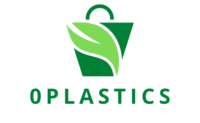A Global Burden: The Economic Costs of Plastic Pollution on Healthcare and Food Systems (498 words)
Plastic, once hailed as a miracle material, has morphed into a global crisis. Its insidious reach extends far beyond overflowing landfills and choked waterways, casting a long shadow over our health and food security. This article explores the hidden costs of plastic pollution, focusing on its economic impact on healthcare and food systems.
Healthcare:
- Treating plastic-induced illnesses: Microplastics, ubiquitous in our environment, are finding their way into our food chain and bodies. Their long-term health effects are still unknown, but potential concerns include inflammation, endocrine disruption, and even cancer. Treating these illnesses, if and when they manifest, will strain healthcare systems globally, adding significant financial burdens.
- Clogged sanitation systems: Improperly discarded plastic disrupts waste management infrastructure. Clogged drains and sewers lead to flooding and the spread of waterborne diseases, requiring costly interventions and impacting public health.
- Increased healthcare costs: Plastic pollution exacerbates existing health problems, particularly in vulnerable communities. Respiratory issues caused by burning plastic waste, exposure to toxic chemicals from leaching plastics, and water contamination all add to healthcare expenses.
Food Systems:
- Contaminated food: Microplastics are infiltrating our food chain, from fish and shellfish to fruits and vegetables. This poses a threat to food safety and human health, requiring stringent testing and potential recalls, disrupting supply chains and causing economic losses.
- Reduced agricultural productivity: Plastic debris in soil can hinder plant growth and disrupt soil health. This can lead to decreased crop yields, impacting food security and causing food prices to rise.
- Tourism decline: Plastic pollution in scenic landscapes and beaches deters tourists, harming local economies reliant on tourism revenue. Cleaning up plastic pollution and implementing sustainable practices requires significant investment, further adding to the economic burden.
The Ripple Effect:
The economic costs of plastic pollution go beyond direct healthcare and food system expenses. They ripple through the economy, affecting livelihoods, businesses, and overall economic development. The costs of cleaning up polluted environments, developing alternative materials, and implementing effective waste management systems are staggering. Additionally, the potential loss of ecosystem services and biodiversity due to plastic pollution can have long-term economic consequences, impacting industries like fisheries and agriculture.
Urgent Action Needed:
The economic burden of plastic pollution is a wake-up call. It’s time to move beyond lip service and implement effective solutions. Investing in research and development of sustainable alternatives, promoting responsible production and consumption, and improving waste management infrastructure are crucial steps. Individual responsibility, coupled with strong government policies and industry accountability, is essential to break free from the plastic trap.
By recognizing the true cost of plastic pollution, we can shift towards a more sustainable future, one that protects our health, our food systems, and our economies. The time to act is now.
